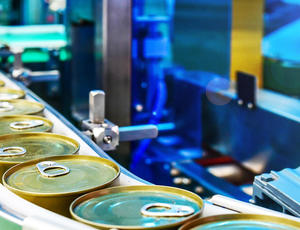We know that food and beverage manufacturers have a multitude of targets and standards to meet - in terms of cost saving, sustainability, health and safety… All while maintaining efficiency and productivity levels.
Particularly in terms of energy, it can be difficult to get the balance of all the different factors you need to consider. This is where a blended energy solution could be the answer. The healthcare sector is already utilising this approach, and it can be equally beneficial to the food and beverage sector.
Meeting conflicting demands
It can be hard to find an energy solution that satisfies all the necessary criteria. Protecting your bottom line and cutting costs where possible is key, as well as maintaining the security of supply and preventing costly utility outages. Particularly as sustainability targets become increasingly stringent, with initiatives like the Carbon Emissions Tax just around the corner, integrating greener energy into the mix is also attractive.
But where is the financial incentive for doing so? If you were to choose a more financially appealing option, you may want to consider CHP; yet there are questions around whether it is the most environmentally friendly choice, especially when fuelled by natural gas. It can be difficult to justify investing in a new energy solution purely for the sake of sustainability, when cost is ultimately the deciding factor. Replacing an energy infrastructure that still works well can also seem unnecessary, especially whilst upgrading to greener solutions is still optional rather than compulsory.
The perfect energy mix
Thinking about energy solutions in terms of a mix rather than single options could help you satisfy all criteria. A blended solution could help you balance cost-saving with improving your environmental impact. An example of this could be using high temperature heat pumps, which deliver carbon savings but have a longer payback period, alongside natural or biogas CHP, which, as mentioned above, has a quicker payback period.
No two sites are the same
This is something we understand at Veolia, and we audit your business accordingly, on a site by site basis. We can offer you a mix of energy solutions which are tailored to your business, taking into account your different needs and also considering future challenges and changes within the food and beverage industry. Unlike other companies, we will not oversell - we will only equip you with the energy solutions that you need.
As we are experts in all things environmental, we can make sure that the energy solutions you implement adhere to upcoming legislation changes, and that you are optimising your site to make it as energy efficient and cost effective as possible.




